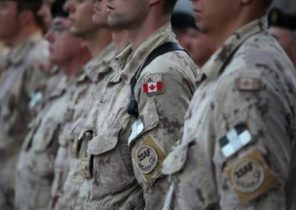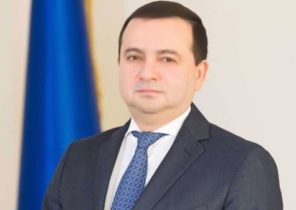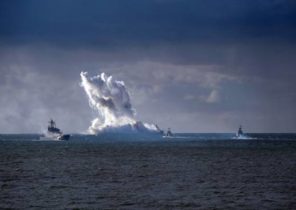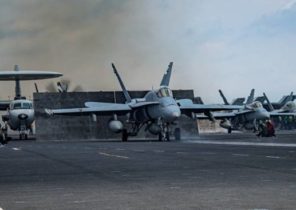Between Turkey and Russia had a relationship that can be called “unique”. In the 19th century between these countries was a series of wars in which Turkey has gradually ceded to Russia part of its territory. For several centuries Russia closely watched the Constantinople (modern Istanbul), because the Russian tsars considered themselves the direct successors of the Byzantine Empire. During the First world war, these two countries have fought against each other in a bloody military campaigns in the Caucasus.
After the First world war and the fall of the Ottoman Empire and modern Turkey established relations with the Soviet Union — partly because the Bolshevik government under Vladimir Lenin abandoned the traditional claims on the territory of Western Armenia and Constantinople. Moreover, thanks to Soviet arms supplies, Mustafa Kemal (Kemal Ataturk), the father of modern Turkey, came to power and defeated the Greeks in the Greco-Turkish war.
The situation deteriorated after the end of world war II, when the Soviet Union came out of the nonaggression Pact signed in 1925. Turkey joined NATO in 1952, and it sent its soldiers as part of UN forces to participate in the Korean war.
If in the past the situation was complicated, but now it has become completely incomprehensible because the President of Turkey, Recep Tayyip Erdogan, obviously, continues to improve relations with both sides.
This week, Russian state media reported that the portfolio of orders of Turkey for Russian equipment is estimated at $ 1 billion.
“Today we can state that the portfolio of orders of Turkey for Russian equipment is estimated in the sum about 1 billion dollars, — said Dmitry Shugaev, the head of the Federal service for military-technical cooperation, in an interview with Turkish TV channel Eko türk tv, as reported by the Russian TASS news Agency. — We have a serious solid Foundation and a good basis for further development and cooperation in the military sphere.”
According to some reports, Russia and Turkey have reached an advanced stage of negotiations on the delivery of the second set of regimental anti-aircraft missile system s-400 “Triumph”. Moreover, Russia is clearly ready to discuss the possibility of technological cooperation with Turkey, which may imply a direct participation of Turkish companies in the production.
“The talks [on the issue] is being done, is a laborious process, requiring a certain amount of time. But given the current limitations in the pandemic to predict the timing of conclusion of this contract — it is not very grateful,” — said Shugaev in an interview with TASS news Agency this week. In September 2017, Russia has announced that it has signed with Turkey the contract in the amount of $ 2.5 billion for the supply of anti-aircraft missile system s-400. In accordance with this contract, the Turkish armed forces have already received the regimental set of s-400 (two battalions). In addition, the Turkish side was partially transferred production technology.
Russian anti-aircraft missile systems s-400 was designed to counter a range of airborne targets including aircraft, cruise missiles and ballistic missiles. In addition, they can be used against ground facilities and installations. Range s-400 is 400 miles, and they are capable of hitting targets at altitudes up to 30 kilometers.
In the list of buyers and potential buyers include China, India, Saudi Arabia and Qatar. Meanwhile, Turkey, which has the second largest armed forces among the NATO countries, was the only member of this Alliance who decided to buy these Russian systems. The us Congress has warned Ankara that the purchase of s-400 will have long-term negative impact on bilateral relations.
Because of the decision of Ankara to buy Russian military equipment of Turkey — although it is a NATO member — was expelled from the program F-35 Joint Strike Fighter (“Unified strike fighter”), and the United States threatened unilateral sanctions. Fearing such sanctions, Turkey has even made an inventory of the parts produced in the United States F-16s and other military equipment.
Despite the exclusion from the program F-35 Joint Strike Fighter, at the end of April, the Turkish sub-contractors continued to produce and supply details for the implementation of this program.
Now, when Turkey is excluded from this program, the question is whether Ankara is to consider alternatives to the F-35 aircraft. In August 2019, the Russian TASS news Agency reported that the Turkish delegation led by President Erdogan got acquainted with the Russian su-35 and su-57 in the course of the international aerospace salon “MAKS-2019” in Zhukovsky near Moscow.
Obviously, the situation will remain difficult.
Peter Suciu writes articles for many magazines, Newspapers and websites. He is the author of several books on military hats, including books titled “A Gallery of Military Headdress” (“Gallery of military headgear”).







